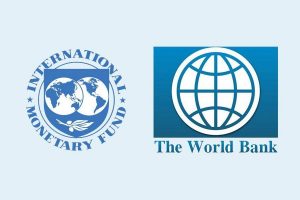- To advance understanding of key policy, institutional issues
The World Bank and the International Monetary Fund (IMF), two of the world’s biggest multilateral financial institutions, in a joint and strategy partnership, have launched a High-Level Advisory Group (HLAG) on sustainable and inclusive economic recovery and growth to help set course through the path for resilient, and inclusive development while securing strong recovery in the face of the coronavirus pandemic and climate change in the next decade.

The group is composed of experts from research institutions, the private sector, and governments. It will be led by Mari Pangestu, managing director for development policy and partnerships, World Bank; Ceyla Pazarbasioglu, director, strategy, policy and review department, International Monetary Fund; and Lord Nicholas Stern of the London School of Economics.
David Malpass, president of the World Bank Group, said, “The poor and most vulnerable have been hit hardest by COVID-19, as well as climate change, and other challenges. I look forward to this High-Level Advisory Group offering new ideas for impactful action, both at country-level and globally, to foster green, resilient and inclusive development and help developing countries get back on track to reduce poverty and inequality.”
Kristalina Georgieva, managing director, IMF said, “The world faces two huge crises—the pandemic, and the climate emergency—that demand radical and coordinated action. Through policy analysis and practical proposals, the High-Level Advisory Group will play a key role in this effort, and I look forward to this important collaboration.”
The advisory group will, in the next 18 months, marshal the combined and complementary policy experience and analytical strengths of its members to set out practical proposals in two phases: First, focus on the immediate challenge of a sustainable and inclusive recovery to inform the processes and meetings in 2021 leading up to the G20 Summit in Rome (October) and the COP26 in Glasgow (November), while the second phase is to deepen the analyses and formulation of actions for sustained transformation in 2022.
However, the World Bank has since the start of the pandemic, committed over $125 billion to combat the health, economic and social impacts. The financing is helping over 100 nations strengthen their preparedness for the pandemic, protect the poor and jobs and jump-start a climate-friendly recovery.
The bank also said it is providing $12 billion to assist low-income and middle-income countries purchase and distribute COVID-19 vaccines, tests and treatments. On climate change, the World Bank Group is the largest multilateral financier of climate action in developing countries, having provided $83 billion in finance for climate change from 2016 to 2020.
On its part, the IMF has also approved $109 billion in financing to 84 countries of which 52 are low-income countries since the start of the pandemic and has recently published a $50 billion roadmap to accelerate the equitable distribution of health tools to help end the health crisis that has devastated lives and livelihoods.
The fund has also provided capacity development to 160 countries during this period. In addition, debt relief under the IMF’s Catastrophe Containment and Relief Trust (CCRT) has been extended to 29 of the fund’s poorest and most vulnerable members reaching almost $700 million for eligible debt service falling due to the IMF through October 15, 2021.
According to the joint statement from the IMF and World Bank, the HLAG will, in addition to senior staff of the World Bank and IMF, propose ideas and frameworks for strategic and practical national and global action. These would contribute towards a sustainable and inclusive recovery, as well as setting the agenda for a sustained transformation based on new perspectives and models of growth and development.








